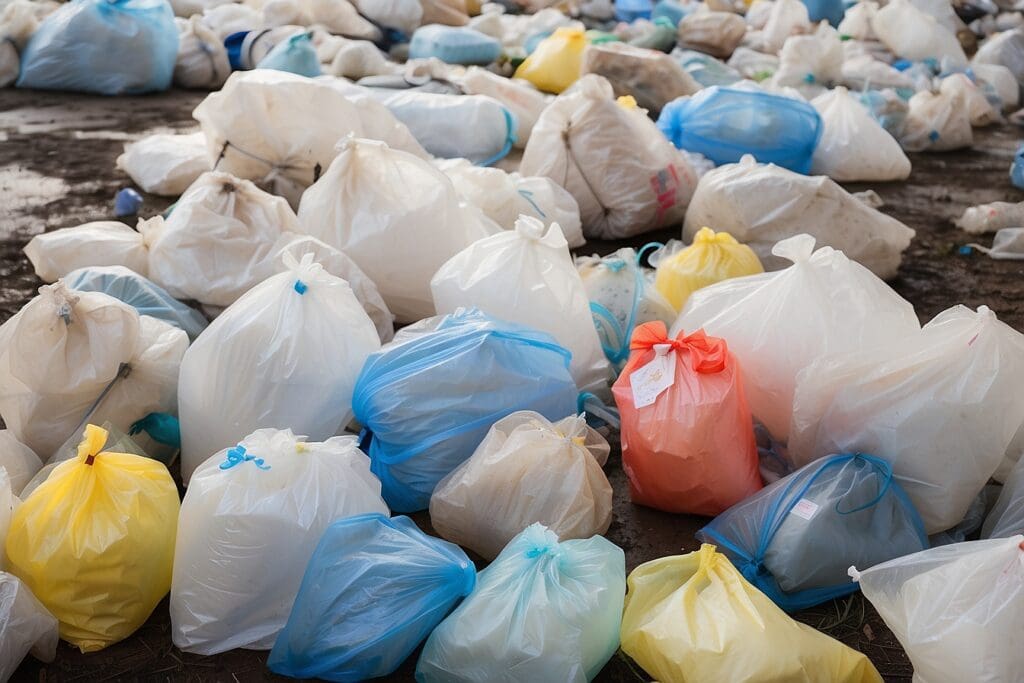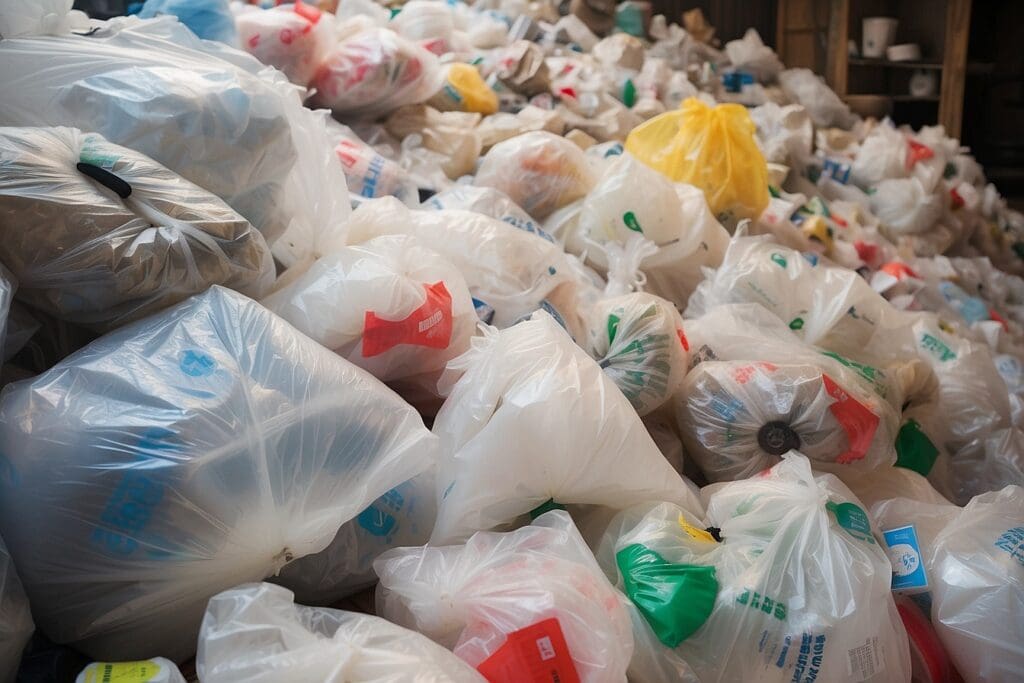Many years ago, as I was moving out of my college apartment in Boulder, Colorado, I was faced with a devastating decision. Did I really have to throw the loads of plastic bags that were shoved into one of my kitchen drawers in the garbage? It didn’t seem right to me. Not only was it dumbfounding that an eco-conscious town like Boulder could not recycle plastic bags, but it was also surprising to see that I had accumulated so many of them in the two years that I had lived in that apartment. I sat with my roommate, debating the alternatives to throwing them in the garbage: Should we turn them into an art project? Could we donate them somewhere? Would the Co-ops want them? Did the University have any use for them? Sadly, because there was already an overwhelming abundance of plastic bags citywide, we did not have the time or resources to do something creative with them. As hard as it is to admit, I was guilty of throwing hundreds of plastic bags into the dumpster behind my apartment complex.

Although that was many years ago—and long before recent improvements were made to local recycling programs—plastic bags are still being consumed and sent to landfills at an overwhelming rate. According to reusablebags.com, “Each year, an estimated 500 billion to 1 trillion plastic bags are consumed worldwide. That comes out to over one million per minute. Billions end up as litter each year. And according to the EPA, over 380 billion plastic bags, sacks and wraps are consumed in the U.S. each year.”1 The concern with plastic bag waste is that is does not biodegrade and it contaminates our soil, water, and food chain. Plastic bags take thousands of years to break down and the lingering remnants of their waste have caused devastating effects on our environment. For example, the Great Pacific Garbage Patch includes 3.5 million tons of garbage swirling 30 meters deep in the Northern Pacific Ocean, with a plastic to sea life ratio being 6:1 (for the full article, go to http://www.wordpress-837916-4114959.cloudwaysapps.com/GreeniacsArticles/Great-Pacific-Garbage-Patch.html). In addition, according to the Center for Marine Conservation, plastic bags are among the 12 items of debris most often found in coastal cleanups.2 Many species of wildlife are killed each year by mistakenly ingesting plastic bags or the bags are simply left astray to leach toxins into our environment.
Fortunately, there is a solution. Since leaving my Alma Mater, I discovered that Boulder now has the infrastructure to recycle plastic bags. Thanks to the organization www.ecocycle.org, you can now recycle #2 and #4 plastic bags free-of-charge. Many other states and communities, including the state of California, are now requiring large supermarkets and pharmacies to offer free recycling of plastic bags. Because many states have put plastic bag recycling laws and initiatives into place, the trend is picking up. As found in the latest National Post-Consumer Recycled Plastic Bags and Film Report by Moore Recycling Associates, Inc., “an estimated 830,180,000 pounds of post-consumer film (including plastic bags and product wraps) was recovered, a 27 percent increase from 2005.”3 If you are uncertain as to where or how to recycle plastic bags in your community, go to www.earth911.org, and you can simply search for resources by your zip code. Many communities, including the city of San Francisco, are also banning the use of plastic bags in large supermarkets to help control their effects on our environment. Also, there are now opportunities to use plastic bags made from biodegradable or compostable sources like corn, potato, and other renewable raw materials (I use BioBags made out of corn to clean up after my dog ).
Recycling plastic bags is definitely a smart and refreshing step in the right direction, but it still does not address the root of the problem. If we create less of demand for the bags in general, they will not be such an overwhelming issue. My solution? The reusable bag! Reusable bags are the best possible solution to our plastic bag crisis by helping you, your community and the environment. Many places reimburse you up to 10 cents per bag used and by decreasing the number of bags distributed you reduce the chances for them to end up as waste in your community. For an extended guide to “Bring Your Own Shopping Bag” go to Greeniacs Guide http://www.wordpress-837916-4114959.cloudwaysapps.com/GreeniacsGuides/Bring-Your-Own-Shopping-Bag.html.
My college guilt still lingers with me, and I will forever be loyal to my stash of reusable bags. For impromptu shopping, I keep several ChicoBags (www.chicobag.com) in my bag or pocket because they can be packed into their integrated stuff pouch and end up smaller than my cell phone. If I am completely unprepared, I still tend to say no to paper or plastic. I, also, still cringe when plastic bags are brought into my apartment-unless, of course, they are made of biodegradable or compostable plastics.



